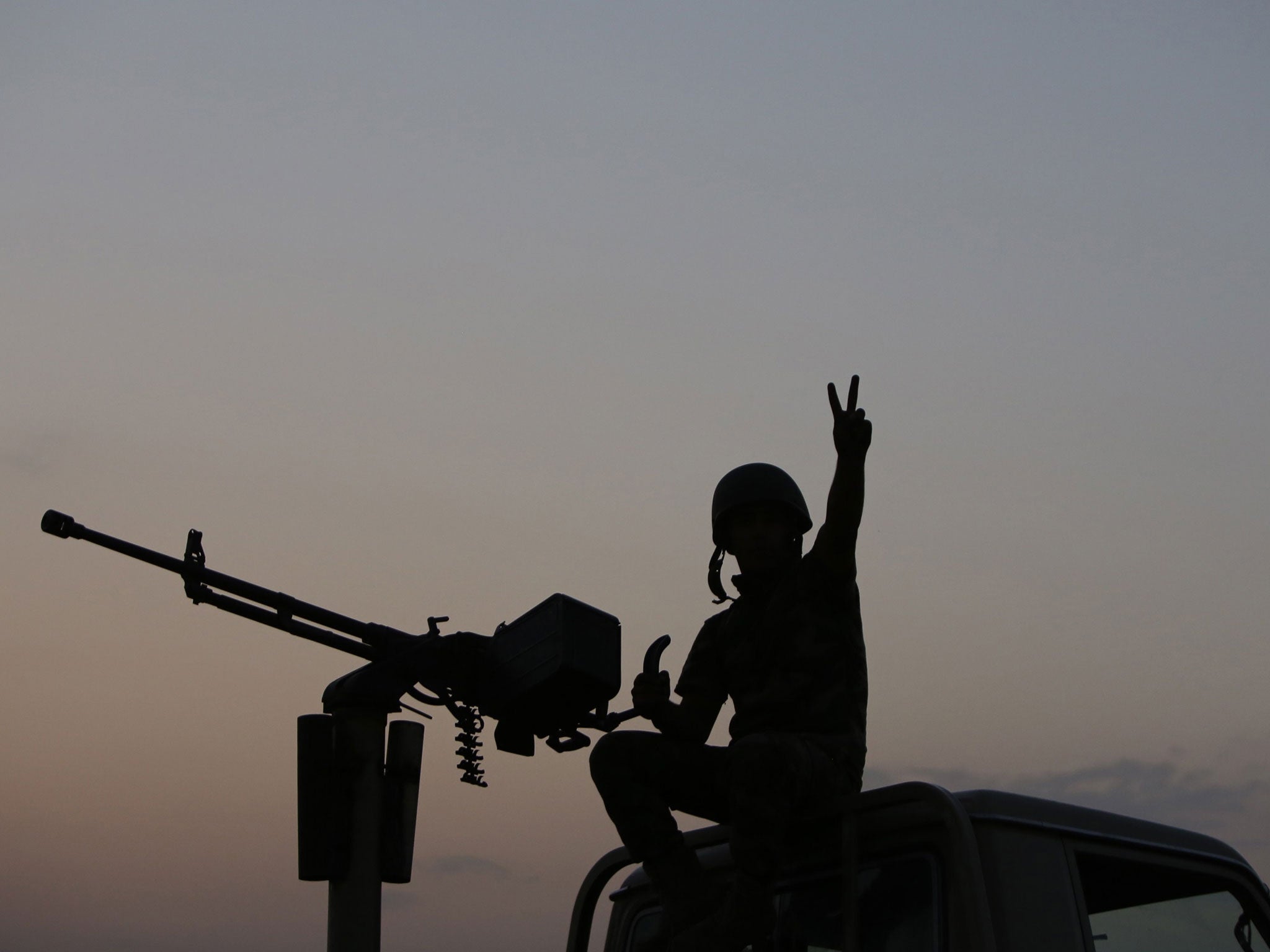Minimise the Iraqi doublespeak
If the Kurds are the only force in the region capable of taking on the insurgents on the ground, we should arm them

Your support helps us to tell the story
From reproductive rights to climate change to Big Tech, The Independent is on the ground when the story is developing. Whether it's investigating the financials of Elon Musk's pro-Trump PAC or producing our latest documentary, 'The A Word', which shines a light on the American women fighting for reproductive rights, we know how important it is to parse out the facts from the messaging.
At such a critical moment in US history, we need reporters on the ground. Your donation allows us to keep sending journalists to speak to both sides of the story.
The Independent is trusted by Americans across the entire political spectrum. And unlike many other quality news outlets, we choose not to lock Americans out of our reporting and analysis with paywalls. We believe quality journalism should be available to everyone, paid for by those who can afford it.
Your support makes all the difference.The merging crisis in Syria and Iraq has given three examples of doublespeak much currency recently. Last week it was denied that the West would make common cause with Bashar al-Assad, the tyrant of Damascus, against the jihadists of the so-called "Islamic State". Following the murder of James Foley, the US journalist, the British and American governments insisted that they do not negotiate with kidnappers.
These assertions have been accompanied by the return of that mantra of Western foreign policy since Tony Blair and George Bush left the stage: "no boots on the ground". The disaster of the invasion and occupation of Iraq has pickled this cliché into one of the axioms of British and American public debate. Public opinion will not stand for it, political leaders tell each other, and so they have ceased to consider the deployment of ground forces in that other military cliché, a "non-permissive environment".
It is quite right, of course, that our leaders should be cautious in the extreme in the use of ground troops. But there is a danger that the hangover from the Iraq decision in 2003 is clouding peoples' thinking about the options open to the rich democracies.
"Boots on the ground" is shorthand for regular troops. It does not mean that the Special Air Service wears ballet pumps. But if special forces are operating in Iraq, and even Syria, it is assumed that we do not need to be told about it, and that, if we were, we would support covert operations, provided that they did not involve complicity in torture. Generally, opinion polls suggest that the British people would approve of all forms of military intervention short of the deployment of regular ground troops to help the Iraqis or Kurds to defeat the jihadist insurgency.
Our ComRes poll today finds that a majority, 55 per cent, agree with the Prime Minister that, "if the 'Islamic State' continues its advance into Iraq unchecked then the organisation will pose a direct threat to security on British streets". This newspaper remains sceptical about that. It is equally possible that further poorly planned interference in the Middle East would encourage more sexually frustrated young men to turn to the caliphate death-cult and to seek to kill here rather than over there.
Equally, however, if there are things that the British military can usefully do to help beat back the insurgents in Iraq and Syria, they should be considered. That consideration should learn the lessons of the disaster triggered by the invasion of 2003, but nothing should be ruled out because of it. Indeed, the British role in that invasion - part of a long history of our interference in the region since the defeat of the Ottoman empire in 1918 - ought to add to our responsibility to do what we can to help put right the errors of the past.
It may be that the best way to discharge that responsibility would be to stay out of the mess. But if we could be sure that we could help, we should. It seems, for example, a little timid to be offering the Kurds night-vision goggles and body armour. If they are the only force in the region capable of taking on the insurgents on the ground, we should arm them, and even think, without being hung up on "boots on the ground", about other ways to support them.
What is more, if pushing back the black-flag terrorists means that we find ourselves with an uncomfortable common interest with the Assad despotism, we should be clear about it. We do not have to support Assad, but if he can be of use in defeating the insurgents, he should be used.
Plainly, there are cases when our leaders cannot be totally explicit. The deployment of special forces and dealing with kidnappers are two examples. But otherwise we should say what we mean and mean what we say, arguing each case on its merits without preconceptions, and without doublespeak.
Join our commenting forum
Join thought-provoking conversations, follow other Independent readers and see their replies
Comments